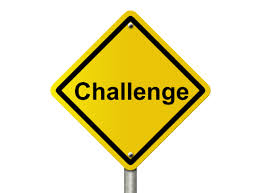
The challenge for parents, want the best for your child, but not for your child to be the best.
May 7, 2015
 Push, Don’t Crush (NYT Sunday Review 4.24.15) speaks to the disturbing phenomena of suicide clusters existing in high achieving communities. Although such clusters are rare, their existence gives pause and urges parents to do some soul searching. The pressure to succeed does not in itself cause suicide but the language we use to communicate our hopes and expectations for children begs our attention.
Push, Don’t Crush (NYT Sunday Review 4.24.15) speaks to the disturbing phenomena of suicide clusters existing in high achieving communities. Although such clusters are rare, their existence gives pause and urges parents to do some soul searching. The pressure to succeed does not in itself cause suicide but the language we use to communicate our hopes and expectations for children begs our attention.

Parents say, ‘All I care about is that you’re happy,’ and then the kid walks in the door and the first question is, ‘How did you do on the math test?’ ” Ms. Levine said. “The giveaways are so unbelievably clear.”
Denise Pope, an education expert at Stanford, calls this gulf between what people say and what they mean “the hidden message of parenting.” Ms. Pope said that children are picking through the static to hear the overriding message that only the best will do — in grades, test scores, sports, art, college. “In everything,”
One solution, said Ms. Pope of Stanford, is “downtime, playtime, family time.” For parents, too. In other words: Take a leap of faith (well supported by science) that downtime will lead to a healthier perspective.
I believe the challenge for parents is to want the best for your child, but not for your child to be the best. Reading for pleasure could be one of the most rewarding activities to put into “downtime” and just might be an antidote to the exorbitant expectation to succeed that children suffer from. Reading fiction builds empathy and compassion for the self and others. The best of stories introduce us to the one character we might recognize, but are not always eager to know better, ourselves.
Reading fiction gives a person the opportunity to know who they are and discover what is of importance. This is what will help children be their best selves become free from the thankless and unattainable goal of being the best.
Oski from UC Berkeley is a fan of Shakespeare!
April 23, 2015

Shakespeare, who would be 450 years old today, is considered the single most influential writer in English. He coined over 1700 words by changing nouns into verbs, changing verbs into adjectives, connecting words never before used together, and devising words wholly original. Do you realize how often you quote Shakespeare? Here are some of the […]
Our humanity needs the humanities.
April 16, 2015
A recent NYT article, Starving for Wisdom beautifully highlights what we have known since Homer— of the importance of a close marriage between the sciences and humanism— “science depends upon the humanities to shape judgments about ethics, limits and values.” The study of humanities, and here I focus on literature, enrich a person’s soul. As […]
Don’t burden poetry
April 12, 2015

A poem is not a test. A poem is a magical arrangement of words that delivers feelings. Poetry and music speak directly to your heart. When listening to a piece of music, the melody and the lyrics wash over you, You find yourself in a particular mood. You would not think to analyze how that […]
Poetry in Steel—April is national poetry month
March 30, 2015

The Eiffel Tower opened to the public March 31, 1889. In honor of April officially designated as National Poetry Month, here is one of my favorite poems about the Eiffel Tower, which has always made me think the tower is no less than poetry in steel. The Eiffel Tower If I wanted to see the […]

